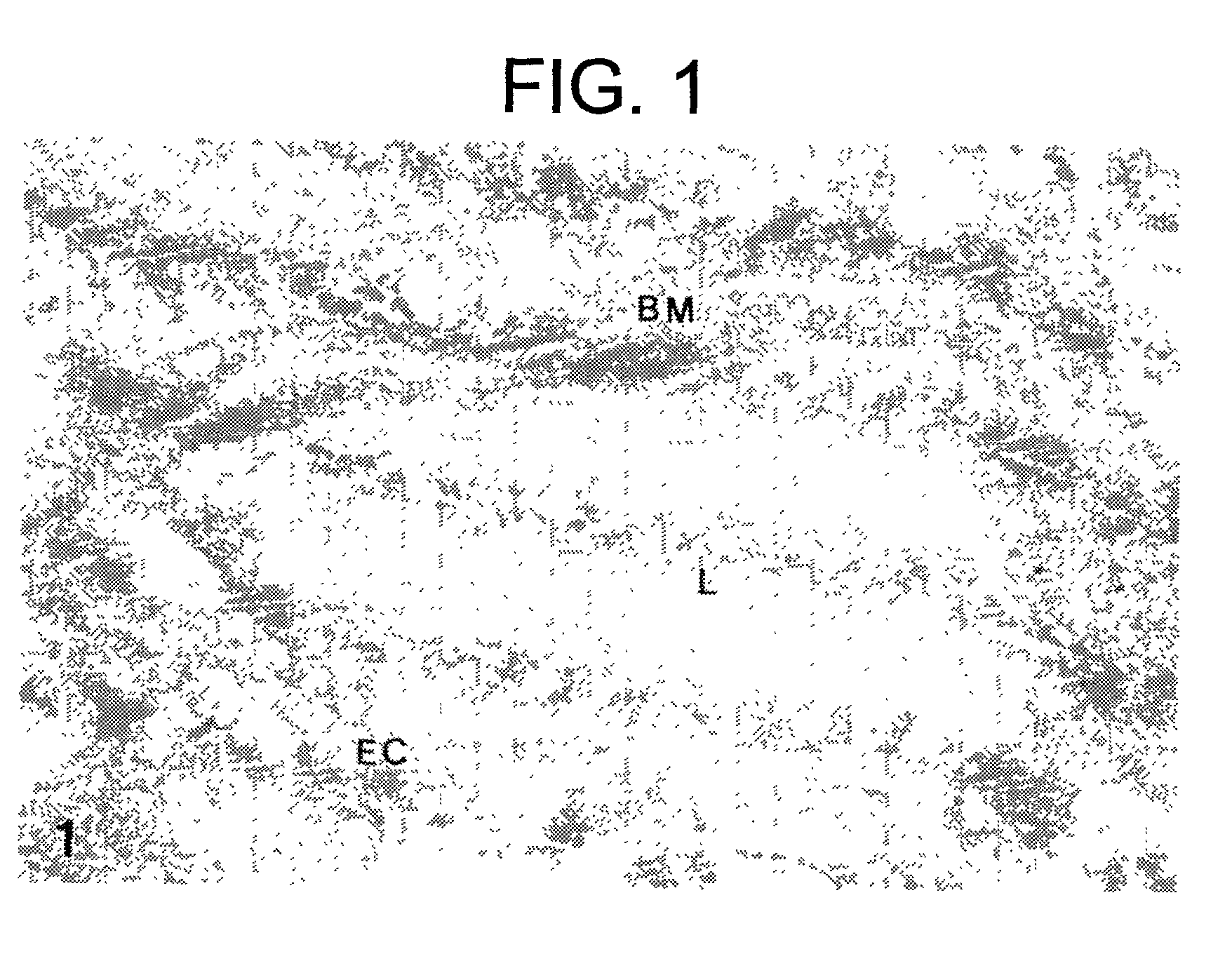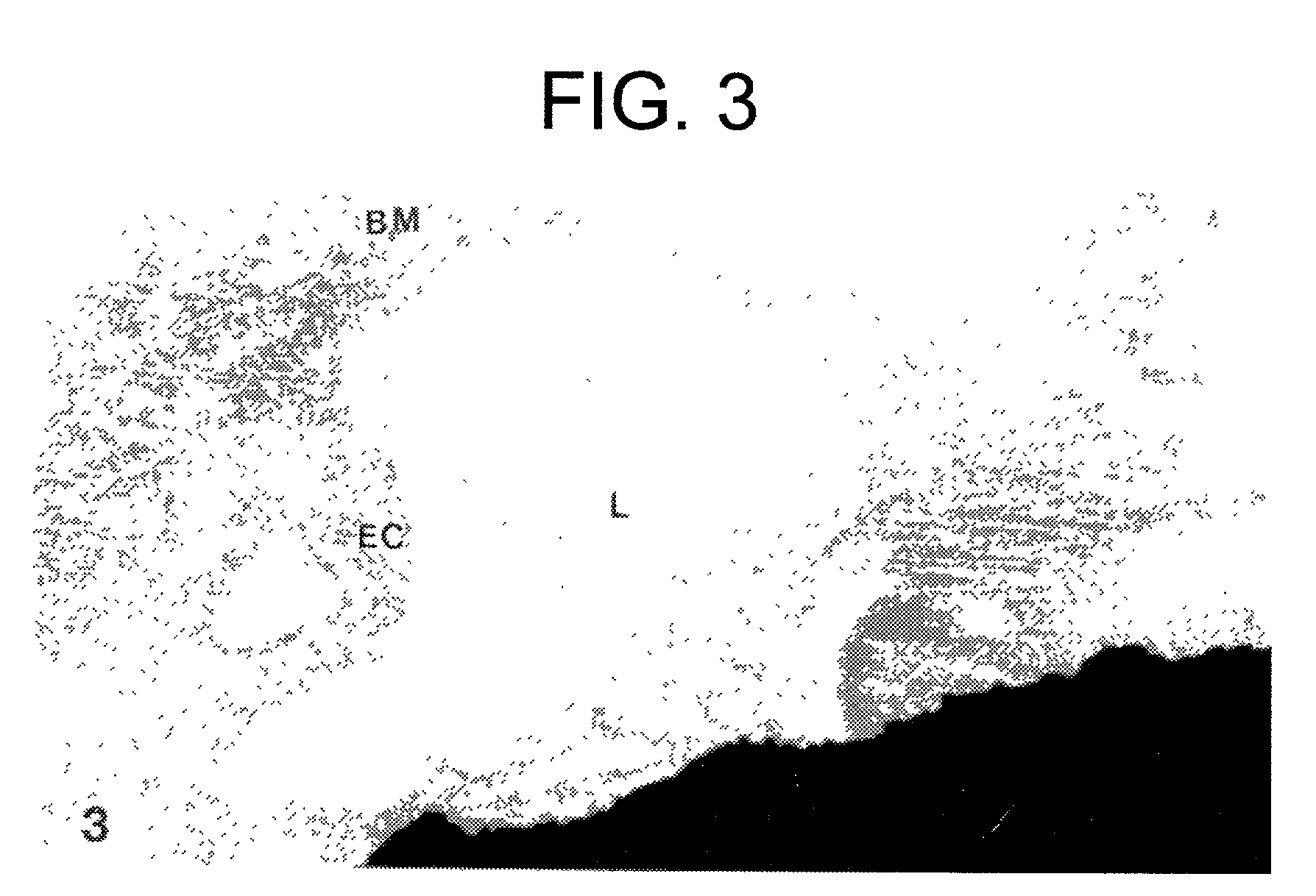Naaladase inhibitors for treating retinal disorders and glaucoma
a technology of naaladase inhibitors and retinal disorders, which is applied in the direction of drug compositions, phosphorous compound active ingredients, peptide/protein ingredients, etc., can solve the problems of affecting the normal function of the retina, the incidence of allergic or toxic reactions of sympathomimetics is fairly high, and the side effects are serious, so as to slow down the onset of retinal ganglion cell death, if not prevented
- Summary
- Abstract
- Description
- Claims
- Application Information
AI Technical Summary
Benefits of technology
Problems solved by technology
Method used
Image
Examples
example 1
Preparation of 5-phosphonomethyl-1,3-benzenedicarboxylic acid (SCHEME I)
Diethyl 5-[(diethoxyphosphinyl)methyl]-1,3-benzenedicarboxylate
[0359]A solution of 5-bromomethyl-1,3-benzene-dicarboxylate (Collman et al., J. Am. Chem. Soc., 116(14) (1994) 6245-6251; 0.315 g, 1.0 mmol) in triethylphosphite (3.0 ML) was heated at 150° C. for 5 hours. The solvent was removed under reduced pressure and the residual oil was purified by chromatography to give 0.248 g of colorless oil: 1H NMR (CDCl3) δ 1.28 (t, 3H), 1.42 (t, 3H), 3.26 (d, 2H)1 4.06 (q, 2H) 4.41 (q, 2H), 8.17 (s, 2H), 8.58 (s, 1H). TLC: Rf 0.10 (EtOAc / Hexanes 1 / 1).
5-Phosphonomethyl-1,3-benzenedicarboxylic acid
[0360]A solution of diethyl 5-[(diethoxyphosphinyl) methyl]-1,3-benzenedicarboxylate (0.186 g, 0.5 mmol) in 12 N HCl (2.5 mL) was heated at 100° C. for 24 hours. The resulting precipitate was washed with water and dried under vacuum to give 0.057 g of white powder: 1H NMR (D2O) δ 3.11 (d, 2H), 7.93 (s, 2H), 8.19 (s, 1H). TLC: Rf...
example 2
Preparation of 5-[(hydroxyamino)carbonyl]-1,3-benzene-dicarboxylic acid (SCHEME II)
Diethyl 5-[[(phenylmethoxy)amino]carbonyl]-1,3-benzenedicarboxylate
[0361]To a solution of diethyl 1,3,5-benzenetricarboxylate (3.192 g, 20 mol) and O-benzylhydroxyamine hydrochloride (4.789 g, 19 mmol) in 40 mL were added N-methylmorpholine (2.2 mL, 20 mmol) and EDC (3.834 g, 20 mmol) at 0° C., and the mixture was stirred at room temperature for 20 hours. The solvent was removed by evaporator and the residue was dissolved in EtOAc (150 mL). The organic solution was washed with 1 N HCL (150 mL), washed with saturated aqueous NaHCO3 (50 mL), dried over Na2SO4, and concentrated to give white solid. This material was recrystallized from EtOAc to give 4.154 g of white powder: 1H NMR (CDCl3) δ 1.41 (t, 6H), 4.40 (q, 4H), 5.05 (s, 2H), 7.3-7.5 (m, 5H), 8.52 (s, 2H), 8.76 (s, 1H), 9.1 (br, 1H). TLC: Rf 0.62 (EtOAc / Hexanes 1 / 1).
Diethyl 5-[(hydroxyamino)carbonyl]-1,3-benzenedicarboxylate
[0362]To a solution of d...
example 3
Preparation of 4-(2-mercaptoethyl)-1,3-benzenedicarboxylic acid (SCHEME III)
Dimethyl 4-trifluoromethanesulfonyloxy-1,3-benzenedicarboxylate
[0364]To a solution of dimethyl 4-hydroxy-isophthalate (0.850 g, 4.04 mmol) in CH2Cl2 (15 mL) were added triethylamine (0.6 mL, 4.3 mmol) and triflic anhydride (0.8 mL, 4.76 mmol) at 0° C., and the mixture was stirred at 0° C. for 18 hours. The solvent was evaporated and the residue was diluted with ether (30 mL). The organic solution was washed with 1 N HCl (30 mL×3), dried over MgSO4, and concentrated to give 1.30 g of dark yellow oil (93% yield): 1H NMR (CDCl3) δ 3.97 (s, 3H), 4.00 (s, 3H) 7.4 (d, 1H), 8.3 (d, 1H), 8.74 (s, 1H)
Dimethyl 4-ethenyl-1,3-benzenedicarboxylate
[0365]To a solution of dimethyl 4-trifluoromethanesulfonyl-oxy-1,3-benzenedicarboxylate (1.5 g, 4.38 mmol) in dioxane (50 mL) were added Pd(PPh3)4 (510 mg, 0.44 mmol), lithium chloride (1.3 g, 30.7 mmol) and tributyl(vinyl)tin (1.5 mL, 5.13 mmol) at room temperature. The mixture...
PUM
| Property | Measurement | Unit |
|---|---|---|
| temperature | aaaaa | aaaaa |
| temperature | aaaaa | aaaaa |
| flow rate | aaaaa | aaaaa |
Abstract
Description
Claims
Application Information
 Login to View More
Login to View More - R&D
- Intellectual Property
- Life Sciences
- Materials
- Tech Scout
- Unparalleled Data Quality
- Higher Quality Content
- 60% Fewer Hallucinations
Browse by: Latest US Patents, China's latest patents, Technical Efficacy Thesaurus, Application Domain, Technology Topic, Popular Technical Reports.
© 2025 PatSnap. All rights reserved.Legal|Privacy policy|Modern Slavery Act Transparency Statement|Sitemap|About US| Contact US: help@patsnap.com



